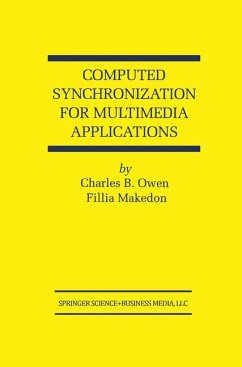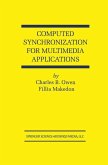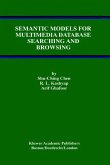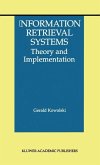Multimedia is changing the design of database and information retrieval systems. The accumulation of audio, image, and video content is of little use in these systems if the content cannot be retrieved on demand, a critical requirement that has led to the development of new technologies for the analysis and indexing of media data. In turn, these technologies seek to derive information or features from a data type that can facilitate rapid retrieval, efficient compression, and logical presentation of the data. Significant work that has not been addressed, however, is the benefits of analyzing more than one data type simultaneously. Computed Synchronization for Multimedia Applications presents a new framework for the simultaneous analysis of multiple media data objects. The primary benefit of this analysis is computed synchronization, a temporal and spatial alignment of multiple media objects.
Computed Synchronization for Multimedia Applications also presents several specific applications and a general structure for the solution of computed synchronization problems. The applications demonstrate the use of this structure. Two applications in particular are described in detail: the alignment of text to speech audio, and the alignment of simultaneous English language translations of ancient texts. Many additional applications are discussed as future uses of the technology.
Computed Synchronization for Multimedia Applications is useful to researchers, students, and developers seeking to apply computed synchronization in many fields. It is also suitable as a reference for a graduate-level course in multimedia data retrieval.
Computed Synchronization for Multimedia Applications also presents several specific applications and a general structure for the solution of computed synchronization problems. The applications demonstrate the use of this structure. Two applications in particular are described in detail: the alignment of text to speech audio, and the alignment of simultaneous English language translations of ancient texts. Many additional applications are discussed as future uses of the technology.
Computed Synchronization for Multimedia Applications is useful to researchers, students, and developers seeking to apply computed synchronization in many fields. It is also suitable as a reference for a graduate-level course in multimedia data retrieval.








